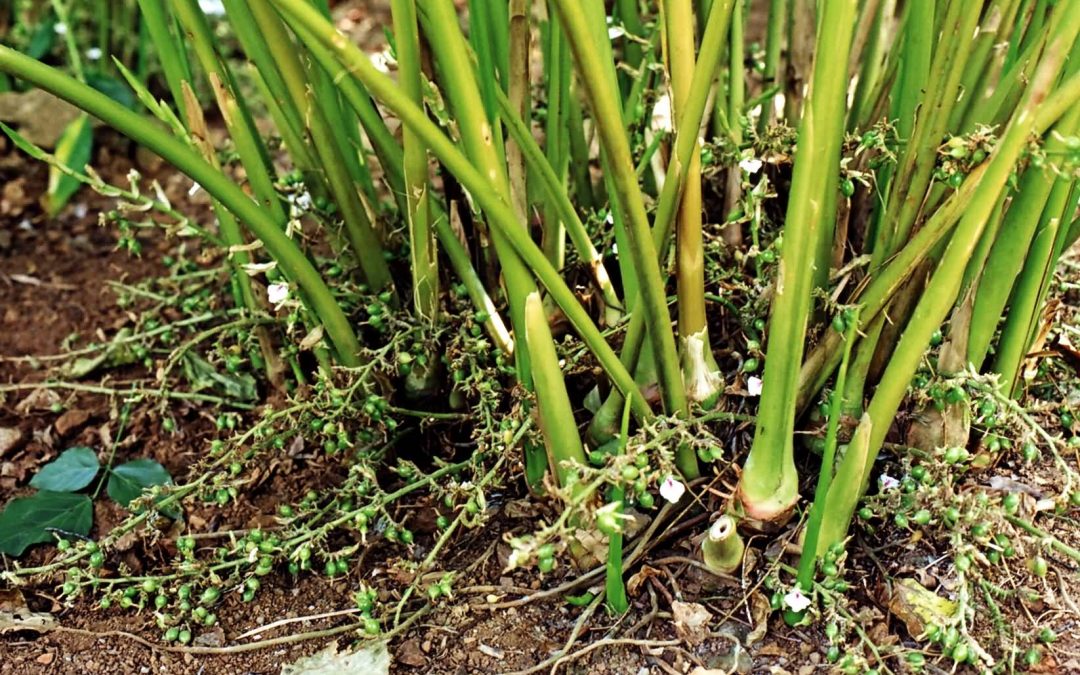Photo: Elettaria cardamomum (cardamon) plant. The fruit pods can be seen at the base of the plant
There are two varieties of cardamom. Large or big cardamom and a small pod variety—green cardamom. Big cardamom is also called black cardamom, Bengal cardamom, or Siamese cardamom and belongs to the Amomum genus. The smaller variety is from Elettaria genus.
Ancient Egyptians burnt the dried seeds for incense. It was also used in combination with resinous substances, herbs, and spices. The incense was used in their ancient temples and palaces.
The fruit and seed were seen to be anti-spasmodic and analgesic. The fruit is rich in essential oils and flavonoids.
Black cardamom mixed with tea (usually the “red” (black) or oolong varieties) is typically drunk after meals. They are said to help with digestion and aid in nutrient absorption. Cardamom is added to milk tea in India.
Alcoholic beverages with cardamom or its use as an aromatic and flavoring additive are common in traditional Chinese medicine. These “flavored liquors” are said to help boost immunity, improve digestion, purify and tonify the blood, and increase vigor.
In the Scandinavian countries, it is used in baked goods and confectionaries. In Europe and North America, it is an ingredient in curry powder and in some sausage products.
Cardamom infused coffee is served in tiny cups and slowly sipped. Bedouins (Arabic nomads) are known to keep capsules of cardamom in the spouts of coffee pots. Each time the coffee is poured, it gets flavored by the spice.
In India, the large pod cardamom is used in biryani. Cardamom is also used as an ingredient in curry masala. Black cardamom is exclusively employed to season food, especially meat-based dishes.
Green cardamom is used to flavor desserts and as a mouth freshener after meals. It is said to detoxify caffeine in coffee. The essential oil is often used in combination with the oils of orange, cinnamon, cloves, and caraway to provide a distinctive flavor to baked goods, coffee, etc.
References:
More on cardamom in Asian Herbs
